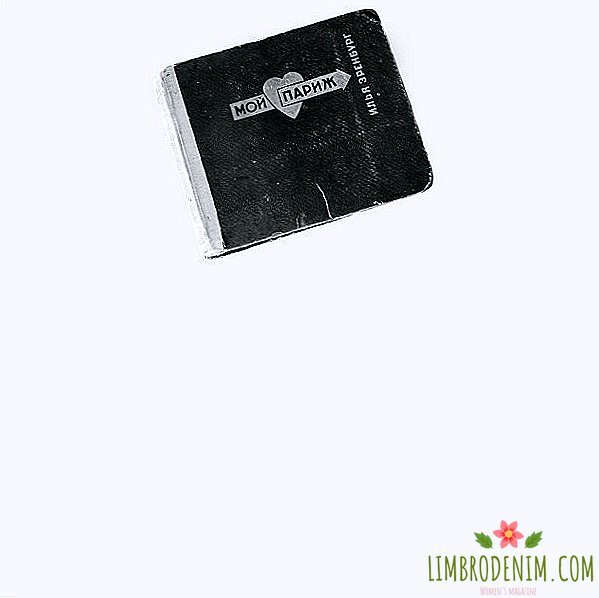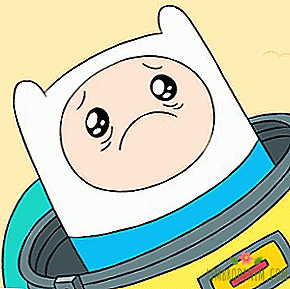"Gathering lonely bananas": How to lead an eco-friendly lifestyle
We all know about environmental issues., but we don’t often think about how we can help in the fight against them. Activists and those who are not indifferent to the question are actively promoting simple techniques that can radically change the situation - it is not surprising that the principle of "zero waste" and conscious consumption are gaining popularity. At the same time, concern for the environment does not require extra costs, and sometimes even helps to save money. We talked with four girls who adhere to eco-friendly lifestyle, and they told why it is not at all scary.

 I love to dress beautifully, it is important for me to express myself through the appearance - so I went to study at the designer (though, then it turned out that this is the last thing the designer does). My parents are environmental geologists, we constantly discussed nature and our impact on it. When I just graduated from college, the fashion industry was particularly strongly associated with constant environmental pollution. In the end, I decided to engage in fashion so that it does not contradict my views.
I love to dress beautifully, it is important for me to express myself through the appearance - so I went to study at the designer (though, then it turned out that this is the last thing the designer does). My parents are environmental geologists, we constantly discussed nature and our impact on it. When I just graduated from college, the fashion industry was particularly strongly associated with constant environmental pollution. In the end, I decided to engage in fashion so that it does not contradict my views.
Now I don’t buy clothes in stores: I wear what I do myself, things of my boyfriend or what I find on a swap - but about three years ago I bought a lot of things. I think that this is also good: I would not have come to conscious consumption if I had not gone through such a stage.
For collections I use fabric from recycled plastic - the Patagonia brand came up with this technique back in the eighties. And our clothes made of organic cotton and organic hemp are biodegradable and fit into the ecosystem: after things get tired, they turn into fertilizer for the same cotton and hemp, which will then become a new fabric.
It seems to me that in the next five years, the fashion industry in its current understanding will simply cease to exist. There will be no seasonality: the consumer already understands that this is just a commercial fiction for the sake of increasing profits. Mass market will be rebuilt, will divide businesses into smaller brands. I think that perestroika is coming to a cyclical economic system, when a product that has become obsolete becomes a resource. If we move in a different direction, we simply use up all the resources. Now they are seriously investing in new textile technologies: they have invented growing skin from fungus, orange cake cloth, suede from pineapple peel, in India they have learned to separate cotton from polyester to facilitate processing, everything is developing very quickly.
Recycling plastic waste is not a panacea for the textile industry: it still uses some amount of new resources. It is necessary to reduce consumption, switch to a cyclical system, improve the quality and durability of products. For this it is important to understand that all clothes are made of something, and most importantly - by someone. How in a world where everything becomes more expensive, clothes can be cheaper? This price at each production stage will be paid by people living in countries with weak economies.
People do not sort garbage, for this there is no infrastructure. It will appear if there is a request, but you need to create this request yourself. If at least you hand over plastic for recycling, you vote for reducing the number of illegal dumps in our country, as well as for processing this raw material. Plastic is no longer a waste, but a resource for the next product.
I sort garbage - in the winter, for example, it lies on my balcony. We take it by taxi, because there is no collection point near the house. At the same time, I think that to think that you are a terrible person, because you do not do this, is complete nonsense. If you love yourself, the world will be better. And then, through yourself, you can love the environment.
 My parents and I often went to Germany, so for me to hand over waste for recycling, saving electricity and water was common. Since childhood I have been used to treating nature with care. When I was a teenager, my friends deliberately threw candy wrappers on the ground - it made me terribly angry, so I threw out the garbage for them.
My parents and I often went to Germany, so for me to hand over waste for recycling, saving electricity and water was common. Since childhood I have been used to treating nature with care. When I was a teenager, my friends deliberately threw candy wrappers on the ground - it made me terribly angry, so I threw out the garbage for them.
I moved to Moscow with the firm intention to lead an eco-friendly lifestyle. My neighbors supported me, so we sort out the waste in the dormitory together. I began to consciously buy food. I never take bags: I have bags for fruit and vegetables and a canvas shop-bag with me. Products in the package I do not take, if you can find an alternative: for example, instead of green in plastic you can buy greens on the market. Always carefully collect lonely bananas, because usually no one takes them and the store simply throws them out. I do not buy water and other beverages in plastic, I always have a reusable bottle with me. If I know that I am hungry, I try to take food from home, so as not to buy any "snickers" once again. But if once a month I suddenly want a product that is already packaged, I don’t deny myself.
I also try to take products from local producers so that the environmental footprint of the product is as small as possible. I'm cooking food for several days at once. Of course, I turn off the water when I brush my teeth, and when I see that no one except me needs a lift, I walk up: why should I waste electricity for me alone?
I began to spend much less: I buy ordinary products, but I do not pay extra for packaging. In addition, recently I practically do not acquire new clothes: sometimes I look in second-hand, take something from my hands. I have accumulated a small package of recyclables that can be recycled. This is mainly soft plastic: packaging from under the croup, toilet paper, sweets, some kind of rags.
There are several useful things that everyone can do: for example, install a collection of batteries and "good lids" at the entrance, arrange a general collection of waste paper. You should also immediately see where you are taking your rubbish, figure out what the markings look like. Even if the garbage lying in the tanks of separate collection is taken by one car and sent to the general landfill, it makes sense to continue. Only then will the processors understand that people are ready to do this.
It is difficult for me to determine how I feel about transport, especially for airplanes. I fly very often, but I understand that this is harmful not only because of emissions, but also due to the fact that almost all dishes and unused food after the flight are simply thrown away. I always carry plastic devices with me from an airplane, and then give it back to recycling. The last time I flew a low-cost airline and thought it was great: they don’t feed anyone, which means there’s no debris after the flight. Now I will take food with me. I will never have a car. I urge all motorists whenever possible to find companions, cooperate and ride together.
I think that it is better to approach the holidays. Surprises are great, but they often turn into unnecessary things. The list of gifts is cool, I hope that in Russia more and more people will compose them. In general, all the holidays can be simplified by abandoning excess tinsel - especially the terrible disposable tableware on the holiday table. On Valentine's Day, I gave my friends Valentine's paper from waste paper - it turned out very cool, and most importantly, environmentally friendly. An excellent example of rethinking the holiday is the action "Give the Teacher a Forest instead of a Bouquet" on September First.
It is much easier to live without wondering what else to buy to become happier. Understanding that your inner state does not depend on material wealth is incredibly valuable. There is more free space in my life. I began to get rid of things: attach, give to shelters, for processing - in the end only what I really needed was left.

 I can not say that I spend a lot of energy on caring for the environment, but I still contribute. I never throw garbage on the street, try to save paper, turn off the lights in the rooms when I don’t find them, and water when I don’t need it. Such things even have an instant bonus - reducing the rent.
I can not say that I spend a lot of energy on caring for the environment, but I still contribute. I never throw garbage on the street, try to save paper, turn off the lights in the rooms when I don’t find them, and water when I don’t need it. Such things even have an instant bonus - reducing the rent.
There are other simple things that also do not require effort: do not pack one lemon or a bunch of bananas into a bag - you will still come home, tear it and throw it away. Even just to buy a regular plastic bottle, but at the same time for a month to carry it with you and not buy another, environmentally friendly. Again, you can approach in terms of savings.
Working in the field of charity, you somehow start to think about the environment. Reducing the load on the ecology of the city is one of the three main objectives of our charity shop. We give eighty percent of things collected through reception points to the needy, we sell five percent, but still there is a mountain of rags, things unfit for wear. Recycling textiles is an extremely unprofitable process, but we still decided to do it. On an exit rags for a floor turn out. We also cooperate with the fund "Heritage of the North", they weave mats from old jackets.
I do not approve of second-hand, because their range is imported into Russia from America and Europe. In this case, the clothes have an ecological footprint: resources are being spent on transportation. I am for maintaining and developing the turnover inside the country. This is what charity stores do: in a month, the Charity Shop collects about fifteen tons of unnecessary things for Moscow residents. On average, a person throws away thirty kilograms of clothing per year. Textile waste, especially synthetics, is one of the most terrible types of waste. Mass market - these are things made mainly of synthetic fabric. They are cheap because of poor-quality raw materials, terrible working conditions and low-paid labor.
I buy products in "VkusVille" and in the farmers' cooperative LavkaLavka. In the second, organic farming standards are followed, and for this you need to take into account a lot of things: that the chickens eat the right food, that they have the correct width of the aviary, and in general they are satisfied and happy. I heard that one farm did not pass certification, because the cow was tied to a peg during milking - as it turned out, it was inhumane, and for milking there is a special device - a machine that clamps the cow with soft pillows.
A waste-free lifestyle seems unattainable to me. I think that everything needs a measure. Moreover, while in our country the infrastructure is poorly developed. When you go with a plastic bottle down the street and you want it to be recycled, the question arises: where? Even if you want to help nature, it’s not always possible.
 When I was thirteen, I started going to the ecology circle. There, for example, we calculated the amount of carbon monoxide produced by transport in our area. It was very interesting to me, and so slowly I came to the topic of vegetarianism, and then the eco-friendly lifestyle. A year and a half ago, I learned about the Zero Waste concept. In particular, it was inspired by Loren Singer, who collected one jar of garbage in four years.
When I was thirteen, I started going to the ecology circle. There, for example, we calculated the amount of carbon monoxide produced by transport in our area. It was very interesting to me, and so slowly I came to the topic of vegetarianism, and then the eco-friendly lifestyle. A year and a half ago, I learned about the Zero Waste concept. In particular, it was inspired by Loren Singer, who collected one jar of garbage in four years.
I tried to reduce the amount of garbage that I made at home and at the university. I bought a reusable bottle and container for food. I found a way to do home composting: I filled a box with earth with worms, which I dug in the ground outside, and dumped organic waste. Unfortunately, our population is not yet sufficiently ready for separate collection, and the usual unsorted garbage in packages often ends up in tanks for recycling. I try to take the garbage to the checked places - in the "Sphere of Ecology" or "GTSK Group".
Following the concept of "Zero waste", you gradually replace the familiar things with other, more environmentally friendly. Instead of the usual brush - wooden, instead of toothpaste - homemade or tooth powder (Pay attention to the composition: tooth powder can damage the enamel. - Approx. Ed.)instead of dishwashing sponge - luffa, which is then perfectly composted, soap nuts for washing, and mustard with soda is perfect as dishwashing detergents. I also do not buy food, cosmetics, household chemicals that are tested on animals.
Such a lifestyle does not make the budget heavier, even the opposite: if you buy something in plastic, then you choose the largest possible volume, and the rejection of this is already a saving. The most convenient supermarket for shopping without waste is Auchan. It has a department where you can take food by weight into your own container. Sellers are surprised, but then they spread into a smile and wish them success in preserving the environment. Another good option is the markets: there you can find milk, cottage cheese, butter and unpacked bread. I always take a thermos with me so as not to use plastic cups when I pour coffee with me. In private coffee houses enjoy such an initiative.
At the same time, I think that you shouldn’t limit yourself much, you should be comfortable. You can not refuse the product that you like, just because it is sold in plastic packaging. Recently, a large supermarket refused free plastic bags. It is ridiculous that after a few days they began to put small bags in the cash desk, in which they usually pack fruit.
With the birth of a child, my lifestyle has changed a little, other priorities have appeared. But I still try to minimize waste: we buy things for a child with it - still it grows very quickly from them. I do not want the child to have a stir in the future around a huge number of toys, in this regard I will be strict.
Very often, relatives do not understand when you ask not to give things that are already in abundance - for example, the next towel with the symbol of the coming year. It's hard to explain that I really don't need it. It becomes offensive, I would like people to listen to the wishes of others. Previous generations lived in a time when there was a shortage of things in the country. When all this diversity suddenly collapsed, I think they were at first confused, and then began to buy everything at once: what if it ends? It seems to me that many are still prone to such thinking.
It is necessary to create high-quality social advertising, introduce interesting lessons, educate. It is necessary to compare your experience with someone else: for example, in Switzerland, 95% of garbage is recycled. A radical law has been introduced there for our country: if a person does not want to sort garbage, he must pay to ensure that workers sort garbage for him. There should be a single system of separate collection, really convenient. It would be cool to separately compost organic waste.
Eco-friendly lifestyle gives room for creativity, you can take a fresh look at things. For example, if a jacket already looks unpresentable, you can look at it differently and change it into a bag.
Photo:dionoanomalia - stock.adobe.com, sichon - stock.adobe.com




